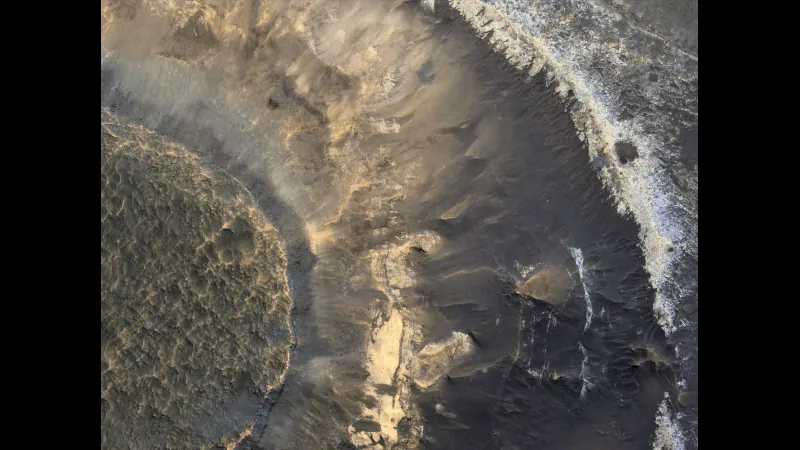
Are Signs of Ancient Life on Mars Buried Beneath Its Clay Layers?
2025-07-04
Author: Siti
Could Mars Have Harbored Life?
Recent research indicates that Mars’ thick layers of mineral-rich clay may hold secrets about ancient life on the planet. These clay deposits, forming hundreds of feet thick around 3.7 billion years ago, suggest that conditions once favored life on the Red Planet.
The Secrets of Clay Formation
Clay forms in the presence of liquid water, and scientists believe these layers emerged under warmer and wetter scenarios compared to Mars today. Rhianna Moore, a study co-author and postdoctoral fellow at the University of Texas’ Jackson School of Geosciences, noted that these regions are stable, allowing potentially habitable environments to endure for prolonged periods.
Lessons from Earth’s Clays
On Earth, thick clay deposits typically develop in humid climates with minimal erosion. Tim Goudge, another co-author, explained that similar conditions might apply to Martian clays, but the planet’s ancient climate and topography’s role in clay formation remains uncertain.
Exploring Martian Landscapes
Using data from NASA's Mars Reconnaissance Orbiter, Moore and her team analyzed 150 clay deposits, focusing on their locations in relation to ancient lakes and river systems. They discovered that these clays predominantly exist in low-lying areas near ancient water bodies, suggesting a history of gentle chemical changes that allowed these minerals to persist.
How Climate Influences Composition
The team’s findings, published in Nature Astronomy, indicate that Mars may have experienced significant chemical weathering, disrupting the balance typically found between weathering processes and climate. Unlike Earth, where tectonic activity exposes new rock to atmospheric conditions, Mars lacks this process, resulting in fewer carbonate minerals.
Trapped Secrets in Clay
As a result, carbon dioxide released from ancient Martian volcanoes likely remained in the atmosphere longer, contributing to warmer and wetter conditions that facilitated clay formation. The researchers speculate that these clay deposits might have absorbed water and trapped chemicals, preventing them from reacting with surrounding rocks to form carbonates.
Unlocking Mars' Mysteries
Moore remarks that these findings highlight how clays might be a key factor in understanding Mars' unique geological history and the puzzling absence of expected carbonate minerals, further igniting curiosity about the potential for ancient life on the planet.




 Brasil (PT)
Brasil (PT)
 Canada (EN)
Canada (EN)
 Chile (ES)
Chile (ES)
 Česko (CS)
Česko (CS)
 대한민국 (KO)
대한민국 (KO)
 España (ES)
España (ES)
 France (FR)
France (FR)
 Hong Kong (EN)
Hong Kong (EN)
 Italia (IT)
Italia (IT)
 日本 (JA)
日本 (JA)
 Magyarország (HU)
Magyarország (HU)
 Norge (NO)
Norge (NO)
 Polska (PL)
Polska (PL)
 Schweiz (DE)
Schweiz (DE)
 Singapore (EN)
Singapore (EN)
 Sverige (SV)
Sverige (SV)
 Suomi (FI)
Suomi (FI)
 Türkiye (TR)
Türkiye (TR)
 الإمارات العربية المتحدة (AR)
الإمارات العربية المتحدة (AR)